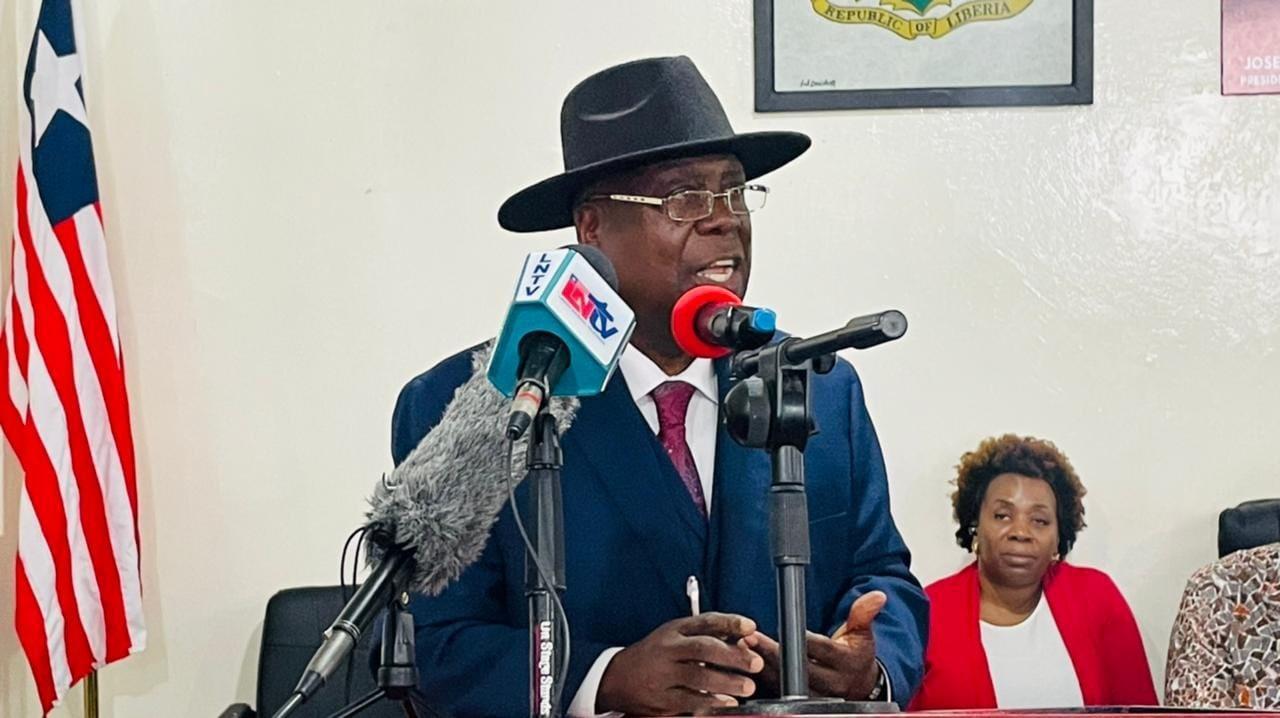Africa-Press – Liberia. Dr. Wonkeryor promised to reform the higher education system to make it comparable and competitive with regional and continental compatriots.
MONROVIA — The executive director of the National Commission on Higher Education (NCHE), Dr. Edward Lama Wonkeryor, has listed the number of higher education institutions he says are impacting knowledge to Liberia’s population.
Established by an Act of National Legislature in 1989, NCHE has the mandate to regulate, manage, and monitor higher education activities in Liberia.
Speaking at the Ministry of Information & Cultural Affairs (MICAT) Regular Press Briefing on Tuesday, July 9, 2024, Dr. Wonkeryor promised to reform the higher education system to make it comparable and competitive with regional and continental compatriots.
“Currently, the NCHE recognizes 80 higher education institutions (HEIs), which are grouped into three categories by credentials, including two Doctoral Degree-granting institutions, 11 Master’s degree-granting institutions, 35 Bachelor’s degree-granting institutions, and 31 Associate degree-granting institutions,” NCHE boss said.
The 80 higher education institutions, Dr. Wonkeryor said are classified into 13 public, 32 private, and 35 faith-based.
The institutions are distributed across 11 counties in Liberia. They include Bomi, Bong, Grand Bassa, Grand Gedeh, Grand Kru, Lofa, Margibi, Maryland, Montserrado, Nimba, and Sinoe Counties.
“The 2022/2023 higher education management information statistics (HEMIS) put the student enrollment in higher education to 59,854, including 31,877 males and 27,987 females across all levels of the higher education sector. Appreciation for budget increment. The last time I appeared at this forum in June 2022, I emphasized a series of challenges resulting from dismal budgetary support received by the NCHE over the years,” he said.
NCHE boss added: “Today, before delving into the details of my presentation, I am pleased to appreciate Ambassador Dr. Joseph Nyuma Boakai, Sr., President of the Republic of Liberia, for the bold steps taken to support higher education activities in the country by increasing the budget of the NCHE from Three Hundred and Thirty Thousand Three Hundred and Ninety-Four Dollars to One Million Thirty Thousand Three and Ninety-Four Dollars. This is a singular but very significant demonstration of the Government’s enduring interest in transforming the educational image of the country to make it not only qualitative, but also competitive in the context of regional and continental educational standards.”
The NCHE boss said with the “massive support” to the NCHE, the higher education sector’s strategic objectives for 2024 – 2026 will successfully implement the statutory mandates of the NCHE.
“We have developed an Activity Work Plan which articulates the following strategic objectives aimed at holistically transforming the higher education system of the country,” he said.
These strategic transformations, according to NCHE boss, have been developed with reference to the 2022 Education Sector Plan (ESP), and they constitute NCHE’s deliverables for 2024 – 2026 in the context of the ESP.
Key among these strategic objectives, he says, are strengthening quality assurance for higher education institutions and delivery of quality and competitive education outputs for sustainable national development.
“To achieve this objective, we have launched a vigorous campaign towards the establishment of quality assurance cells at each accredited institution, from whence the delivery of programs can be monitored at the institutional levels. This involves checking faculty quality, curriculum usefulness, lecturers’ attendances, and many others,” Dr. Wonkeryor added.
For More News And Analysis About Liberia Follow Africa-Press






